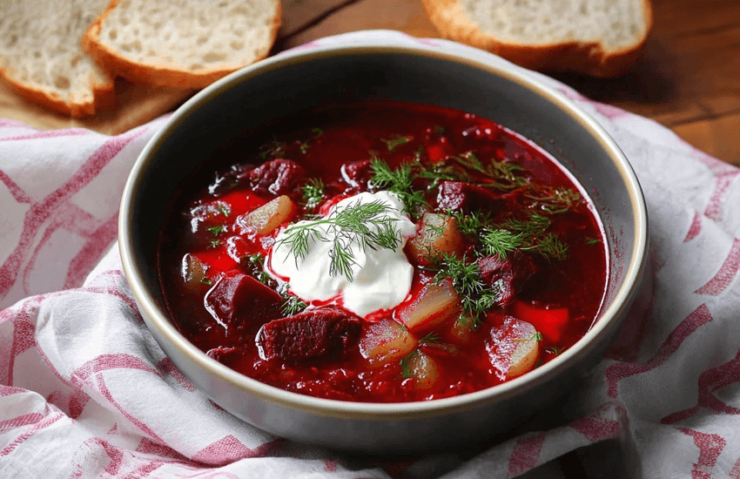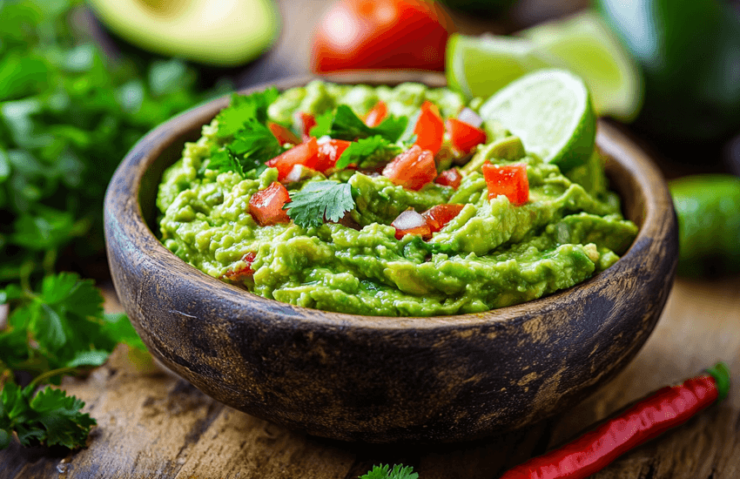Liver diseases are rising globally, not just from alcohol but also due to unhealthy lifestyles. Cultivating these herbs can support a healthy liver naturally.
Experts continuously emphasize the importance of taking care of our liver to maintain a healthy liver and prevent liver diseases.
Fortunately, nature offers us a variety of options in this regard.
Among herbs, there are many that support digestion and normal liver function, often referred to as hepatoprotective plants.
However, it’s important to remember that if you are already experiencing liver problems, it’s advisable to consult with a doctor before using herbal extracts.
Why You Shouldn’t Underestimate Healthy Liver Care
The liver plays a crucial role in detoxifying the body, filtering out harmful substances and toxins. While it has the ability to regenerate, prolonged exposure to toxins can gradually and subtly deteriorate its condition.
Many factors can contribute to liver diseases. Some are hereditary, while others, like hepatitis, are infectious. Fatty liver disease, or hepatic steatosis, and subsequent more severe damage such as fibrosis and cirrhosis, are often the result of lifestyle choices.
Excessive alcohol and drug use, smoking, an unhealthy diet full of refined sugars and processed foods, and lack of physical activity are the usual culprits.
Neglecting regular health check-ups only exacerbates the problem. General medical advice is clear: think about your liver, live healthier, and have it checked regularly. Dietary supplements containing herbal extracts can also help maintain liver health.
Best Herbs for the Liver
Herbs contain a variety of antioxidants that help protect liver cells and components that assist the body in eliminating toxins, thereby easing the burden on the liver. Here are ten herbs that can help support liver function:
Milk Thistle
Milk thistle has been used for thousands of years by our ancestors for gallbladder and liver issues. It contains the key ingredient silymarin, a mixture of bioflavonoids with potential antioxidant effects.
Some studies suggest that milk thistle can protect the liver from disease progression and improve the quality of life for liver disease patients, as well as potentially extend the lives of those with alcohol-related cirrhosis. However, further research is needed as other studies have not confirmed these effects.
In our online store, you can find milk thistle in capsule form, as well as in alcohol-free tinctures. Milk thistle has no known side effects and is well-tolerated by patients, making it a common ingredient in liver supplements.
Ginseng
Ginseng, known as Asian ginseng, is a popular herbal supplement. In vitro and animal studies have demonstrated ginseng’s antioxidant effects and its potential to protect the liver from toxin-induced damage and aid in liver cell regeneration after surgery, supporting a healthy liver.
Human studies also suggest that ginseng can improve liver function and promote a healthy liver by reducing fatigue and inflammation in people with non-alcoholic fatty liver disease. In a 2020 study, men with elevated liver enzyme markers (ALT and GGT) took ginseng extract for 12 weeks, resulting in significantly lower levels of these markers compared to those who took a placebo.
Ginseng is generally safe when used alone, but caution is advised when combining it with medications, and it’s best to consult a doctor beforehand.
Licorice Root
Licorice root (Glycyrrhiza glabra) contains glycyrrhizin, a compound with anti-inflammatory, antiviral, and hepatoprotective effects, according to scientific studies. Traditional Chinese and Japanese medicine uses glycyrrhizin to treat various diseases, including liver conditions.
One study showed that people with fatty liver disease who took licorice root extract daily for two months experienced a reduction in liver damage markers. In another study, participants who consumed vodka along with glycyrrhizin did not show significant increases in liver damage markers, suggesting licorice root may protect the liver from alcohol-induced damage.
Turmeric
Turmeric, a common spice in kitchens, contains curcumin, which has multiple liver health benefits according to studies. It works well with piperine, a black pepper extract that enhances its absorption.
In one study, patients with non-alcoholic fatty liver disease who took 500 mg of curcumin and 5 mg of piperine daily for 12 weeks showed significant reductions in inflammatory markers, LDL cholesterol, and liver damage markers compared to the placebo group. Curcumin also helped reduce the severity of the disease in these patients.
Ginger
Ginger root contains powerful compounds like gingerols and shogaols that help slow inflammation and protect liver cells from toxin-induced damage. It’s a natural aid worth exploring in the prevention of non-alcoholic fatty liver disease.
In a 12-week study of 46 people with non-alcoholic fatty liver disease, those who took 1500 mg of ginger extract daily had significant reductions in ALT, total and LDL cholesterol, blood sugar, and the inflammatory marker CRP, compared to the placebo group.
Garlic
Garlic, technically a vegetable, is widely used in dietary supplements. It is rich in antioxidants and plant compounds with proven anti-inflammatory effects. Studies have shown that consuming either powdered garlic extract or fresh garlic can lower LDL cholesterol, triglycerides, and reduce the risk of steatosis and other liver diseases, contributing to a healthy liver.
For those who dislike fresh garlic, garlic extract in supplement form is a convenient alternative. It’s available in capsules or alcohol-free tinctures like Salvia Paradise Garlic. However, it’s essential to adhere to the recommended dosage, especially for people with low blood pressure, as garlic can lower blood pressure.
Benedictine
This annual plant contains tannins, bitters, and essential oils. Pharmacological studies suggest that Benedictine can positively influence digestive function by supporting bile and digestive juice production. In traditional medicine, it was used to treat liver diseases and was tested for its ability to restore normal liver function.
The extract of this herb is a common ingredient in herbal liqueurs due to its bitters content, which stimulates appetite and digestion.
Wormwood
A perennial plant from the Asteraceae family, also known as “absinthe” or “God’s wood.” It is rich in nutrients such as vitamins A and C, minerals like iron and calcium, and contains essential oils, tannins, bitters, flavonoids, and antioxidants. Traditional medicine uses wormwood for digestive problems and hepatitis, and this use persists today according to various studies.
Yarrow
Yarrow (Achillea millefolium) is rich in bitters that support the production of stomach acids and bile. Together with wormwood and extracts from other herbs, it is an ingredient in the alcohol-free herbal drops “Sila Bylin,” available in our online store. These drops are suitable for daily use to support gallbladder and liver function and improve digestion.
Green Tea
A popular beverage, green tea offers not only well-known energizing effects but also potential liver benefits. Green tea contains a polyphenolic compound called epigallocatechin-3-gallate (EGCG). According to studies, green tea extract can be helpful for patients with liver diseases.
In two studies, patients with non-alcoholic fatty liver disease who took 500 mg of green tea extract for three months significantly reduced liver damage markers and inflammatory markers. Another study showed that green tea extract positively impacts the prevention of various liver diseases, from hepatitis to steatosis and cirrhosis.
Can We Do More for Healthy Liver Health?
Liver detox, which aims to relieve the liver from accumulated toxins, is a popular topic. However, maintaining a healthy lifestyle is far more effective, as the liver can largely regenerate itself. The rest of the body must also cooperate in supporting liver health.
Therefore, as doctors often remind us, herbal supplements alone will not prevent liver disease unless accompanied by lifestyle improvements. A healthier diet with more fiber, vegetables, and fruits, less refined sugar, and processed foods is essential. Regular physical activity, losing excess weight, and reducing alcohol consumption and smoking are also crucial.
It’s also important not to neglect the gallbladder, whose function and good condition contribute to liver health. These two organs complement each other, and many of the herbs mentioned above benefit both the liver and gallbladder.
If you want to help your body eliminate toxins, you might try P. Jentschura’s detox tea, which contains up to 48 herbs, including licorice root, ginger, and garlic.
Conclusion
Do you know the condition of your liver? If not, we recommend getting it checked during a preventive examination with your doctor. Many people are unpleasantly surprised by the results, but lifestyle changes can prevent further liver damage.
Even with more severe diagnoses, liver-friendly herbs can be helpful for maintaining a healthy liver, of course, after discussion with a doctor. As you’ve seen, there’s plenty to choose from.







Please register to post comment.